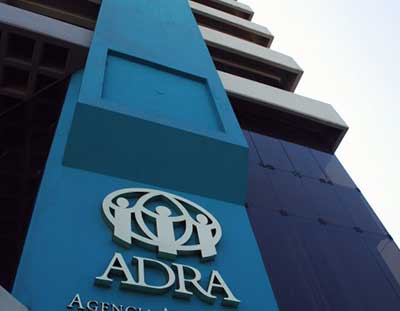 In a bid, to create additional jobs and business opportunities, improve profitability by benefiting from the economies of scale. The Adventist Development and Relief Agency (ADRA), is set to duplicate its business model in other African countries.
In a bid, to create additional jobs and business opportunities, improve profitability by benefiting from the economies of scale. The Adventist Development and Relief Agency (ADRA), is set to duplicate its business model in other African countries.
At the ADRA, Business Launch Presentation held in Ikoyi, Lagos, ADRA Director, Erik Buck Procida, said the programme was meant to address challenges and connect micro farmers in cooperation. Where they get the advantages of small scale and remain with the individual incentives using hands-on business training and successful entrepreneurs in the process. Creating role models to compare with, motivation and competition with a peer group of fellow entrepreneurs and students.
However, Procida said the ADRA, Business Launch and ingrower meant to offer social impact investment in rural agricultural areas. He said the assumptions indicate above 20 per cent within the first 10 years and an annual extra employment of approx. “The business model has shown successful results and achieved financial sustainability since its start five years ago.”
“ADRA, International has some 6,000 employees and presence in more than 130 countries, including Nigeria for almost 30 years. “ADRA Business was found in Demark in 2001 as separate entity to ADRA, Denmark, based on a network of companies supporting relief and development aid with a private sector approach.”
ADRA Business was founded in 2001, as a separate entity to ADRA Denmark, based on a network of companies supporting relief and development aid with a private sector approach”.
“The Danish knowhow is private company founded in 2005 to develop and implement innovative activities in developing countries. The company increases and improves agribusiness entrepreneurship and transforms small-scale subsistence farmers into successful businesses. Clients are investors, governments and donors who wish to facilitate agricultural development, based on entrepreneurship, job creation and financial sustainability.”
In Mozambique Danish knowhow runs a business combining agricultural training with commercial production. The business is operated according to the ingrower. The fundamental of the ingrower is to get the advantages of scale and remain with the individual incentives for small holder farmers in developing countries,” he maintained.
Among the facilities fertile land, plenty of work force, attractive market and funding available. While other factors were lack of economies of scale, access to the value chain low motivation and low productivity.The total financial need is estimated to $24m. Capital is to be provided as social investment from private companies, NGO’s and governmental institutions. The ingrower itself will be financial sustainable and will provide significant social and economic impact to the local area-he maintained.
Social investment develops agribusiness entrepreneurship. ADRA Business and Danish knowhow cooperate to develop and implement Innovative activities in developing countries we increase and improve agribusiness entrepreneurship and transform small-scale subsistence farmers into successful businesses,” he said.
Country Director of ADRA, Fred Adeola Omosebi, who spoke to The Guardian, said the proposal is to establish 10 agricultural production units in Nigeria, operating according to the ingrower scheme. “The business focuses on on-site production and marketing of vegetables and chicken, produced by local smallholder entrepreneurs.”
According to Omosebi, the ingrower is a commercial project based on profit sharing with the local entrepreneurs. The platforms offer training, production facilities, marketing and business support. Local entrepreneurs run their own business inside that the ingrower. Each entrepreneur has independent budgets and bank accounts. Profit of the production is shared 50/50 between the entrepreneurs and the ingrower. The project addresses the major challenges for agricultural entrepreneurs by focusing on the lack of knowledge and economies of scale. The entrepreneurs work in close cooperation while individual incentives.
He pointed out that the entrepreneur receives knowledge and experience, which any body might use to expand their business within the ingrower or leave to establish their own agricultural business with capital saved. The ingrower scheme is developed by Danish knowhow and is implemented in full scale in Mozambique.
Omosebi disclosed that in total the 10 units would give space for 1000 entrepreneurs who will stay in average 1½ year in the project. Flows of about 700 persons will every year leave the project with new skills, business experience and capital saved.
Former ambassador to Nordic/ Sweden, Ambassador Benedict Onochie Amobi, encouraged participants to embrace the ADRA business concept to diversify to other projects instead of relying on oil’s wealth. He urged them to network with business associates and like-minds at the forum to continue promote Nigeria projects passionately and her image and reputation.



